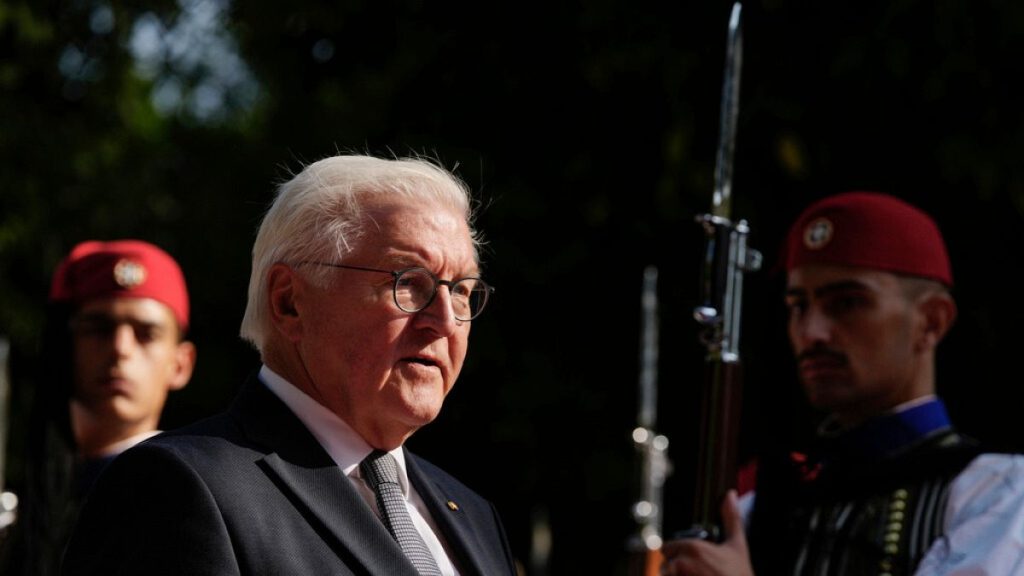German President Frank-Walter Steinmeier has agreed to dissolve parliament at the request of Chancellor Olaf Scholz following the collapse of the ruling coalition. The election date has been set for 23 February, earlier than originally planned. The coalition government fell apart after Finance Minister Christian Lindner was fired, leading to the withdrawal of the Free Democratic Party (FDP) from the government. The “traffic light” coalition, which included the FDP, Social Democratic Party (SPD), and Green party, had been in power since 2021. Internal divisions over the budget led to the downfall of the coalition, prompting the need for new elections. The Bundestag will continue to function until a new government is selected in February. Steinmeier emphasized the need for a stable government capable of taking action and reliable majorities in parliament in times of uncertainty.
Key issues ahead of the February vote include the CDU likely taking first place with 31% of the vote, followed by the Alternative for Germany (AfD) in second place with 19%. The SPD and Greens are also expected to have significant support. The far-right AfD’s rally in Magdeburg following an attack on a Christmas market raised concerns about potential extremist motives. However, authorities cautioned against making premature judgements on the attacker’s motivations. The campaign leading up to the election will focus on Germany’s economy, immigration, and Russia’s war in Ukraine, among other key issues. The parties will need to convince voters of their visions for the country’s future in the face of these challenges.
The election campaign will be marked by economic uncertainty, wars in the Middle East and Ukraine, and pressing issues of immigration control and climate change. The short campaign period poses challenges for parties to address these issues and find solutions. Different parties are laying out their contrasting visions for the country’s future, with the CDU likely to seek coalition partners to form the next government. Chancellor candidate for the Green party, Robert Habeck, expressed concern about potential societal division following the attack on the Christmas market, cautioning against spreading distrust against Muslims, foreigners, and people with a history of immigration. Steinmeier condemned attempts to influence the election campaign through defamation, intimidation, or violence, emphasizing the need for a respectful and decent election process.
In response to the collapse of the ruling coalition, Chancellor Olaf Scholz called for a vote of no confidence against him, which failed, leading to the dissolution of parliament and the scheduling of new elections in February. The decision to move up the election date was made to address the challenges facing Germany, including political uncertainty, economic instability, and international conflicts. The country has faced several premature government terminations in its history, highlighting the need for stable governing structures. Steinmeier’s decision to proceed with new elections reflects the desire to establish a government capable of addressing the country’s current issues effectively and ensuring reliable majorities in parliament.
The upcoming election will see the CDU likely leading in the polls, with other parties such as the AfD, SPD, and Greens also vying for voter support. The AfD’s response to the attack on the Christmas market raised concerns about potential extremist rhetoric and societal tensions. Campaigning will focus on key issues such as Germany’s economy, immigration policy, and international conflicts. The need for stability in government and effective solutions to the challenges facing the country will be central to the election campaign. Parties will need to present compelling visions for Germany’s future and earn the trust of voters to secure their support in the upcoming elections. The outcome of the election will determine the composition of the next government and its ability to tackle the pressing issues facing Germany both domestically and internationally.


